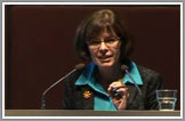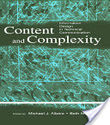-
About
- About Listly
- Community & Support
- Howto
- Chrome Extension
- Bookmarklet
- WordPress Plugin
- Listly Premium
- Privacy
- Terms
- DMCA Copyright
- © 2010-2024 Boomy Labs


 Joanne Sorensen
Joanne Sorensen
Listly by Joanne Sorensen
People from different disciplines carry out research and lead activities in the procedure writing space. This is a list of my favourites.

information design#instructional texts#instructions#writing#human factors#

Tax forms, credit agreements, healthcare legislation: They're crammed with gobbledygook, says Alan Siegel, and incomprehensibly long. He calls for a simple, sensible redesign -- and plain English -- to make legal paperwork intelligible to the rest of us.

Do I have your attention? Thinking about UX & UX about thinking Chris Atherton @finiteattention

Providing effective operating procedures is crucial to success By Peter T. Bullemer, Human Centered Solutions, LLC Use of procedures is an integral part of operating a large industrial process to achieve consistent, safe production. Industry regulations, e.g., OSHA 1910, require companies to provide written operating procedures that contain clear instructions for safely executing activities for startup and shutdown as well as normal, temporary and emergency operations.

presentations#procedures#attention

English: Over the past few decades information design has been in transition-moving from the creation of mainly paper-based communications to today's mix of paper and electronic artifacts. Information designers' repertoire must now include visual and verbal strategies for the Web.

Regularly, InfoDesign interviews a thought leader in the design industry, focusing on people who are identified with or show strong sensibilities to the design of information and experiences. This time, Peter J. Bogaards interviews Karen A. Schriver.
The top five communication and coordination failures were failures of: planning or preparatory activities (31%), in dividual and team execution (14%), work direction and supervision (13%), communication between func
tional groups (12%), and activity assessment (10%).

Regularly, InfoDesign interviews a thought leader in the design industry, focusing on people who are identified with or show strong sensibilities to the design of information and experiences. This time, Peter J. Bogaards interviews Karen A. Schriver.

This volume tells the story of research on the cognitive processes of writing-from the perspectives of the early pioneers, the contemporary contributors, and visions of the future for the field.Writing processes yield important insights into human cognition, and is increasingly becoming a mainstream topic of investigation in cognitive psychology and cognitive neuroscience.

Information design is an emerging area in technical communication, garnering increased attention in recent times as more information is presented through both old and new media. In this volume, editors Michael J. Albers and Beth Mazur bring together scholars and practitioners to explore the issues facing those in this exciting new field.
